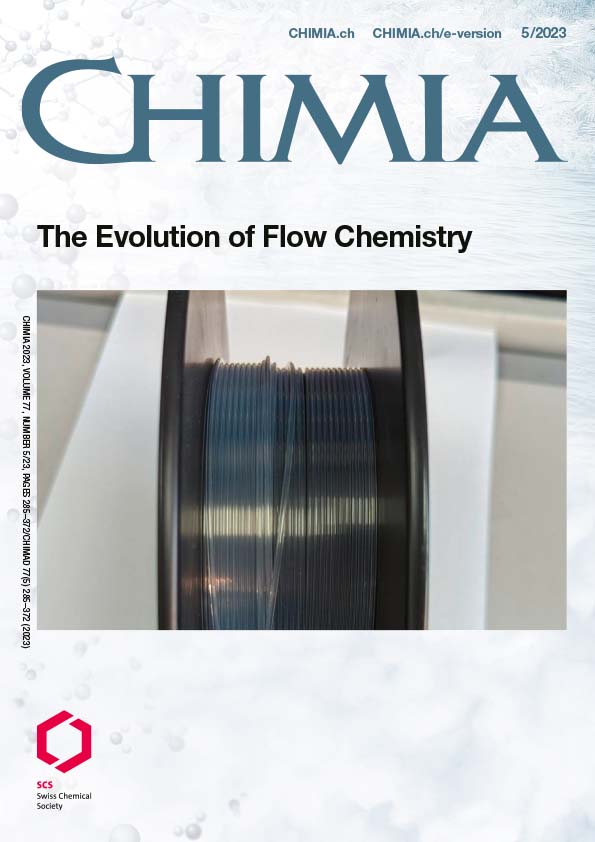The Rocky Road to a Digital Lab
DOI:
https://doi.org/10.2533/chimia.2023.300PMID:
38047825Keywords:
Automated platform, Digitalization, Flow chemistry, PATAbstract
The pharmaceutical industry has begun incorporating continuous manufacturing technology in synthetic routes toward active pharmaceutical ingredients (APIs). The development of smart manufacturing routes can be accelerated by utilizing digitalization, process analytical technology (PAT), and data-rich experimentation from an early stage. Here, we present the key aspects of implementing automated flow chemistry reactor platforms with real-time process analytics. Based on our experiences in this field, we aim to highlight the potential of these platforms to conduct self-optimization, automated reaction model building, dynamic experiments and to implement advanced process control strategies
Downloads
Published
Issue
Section
License
Copyright (c) 2023 Peter Sagmeister, Jason D. Williams, C. Oliver Kappe

This work is licensed under a Creative Commons Attribution 4.0 International License.







